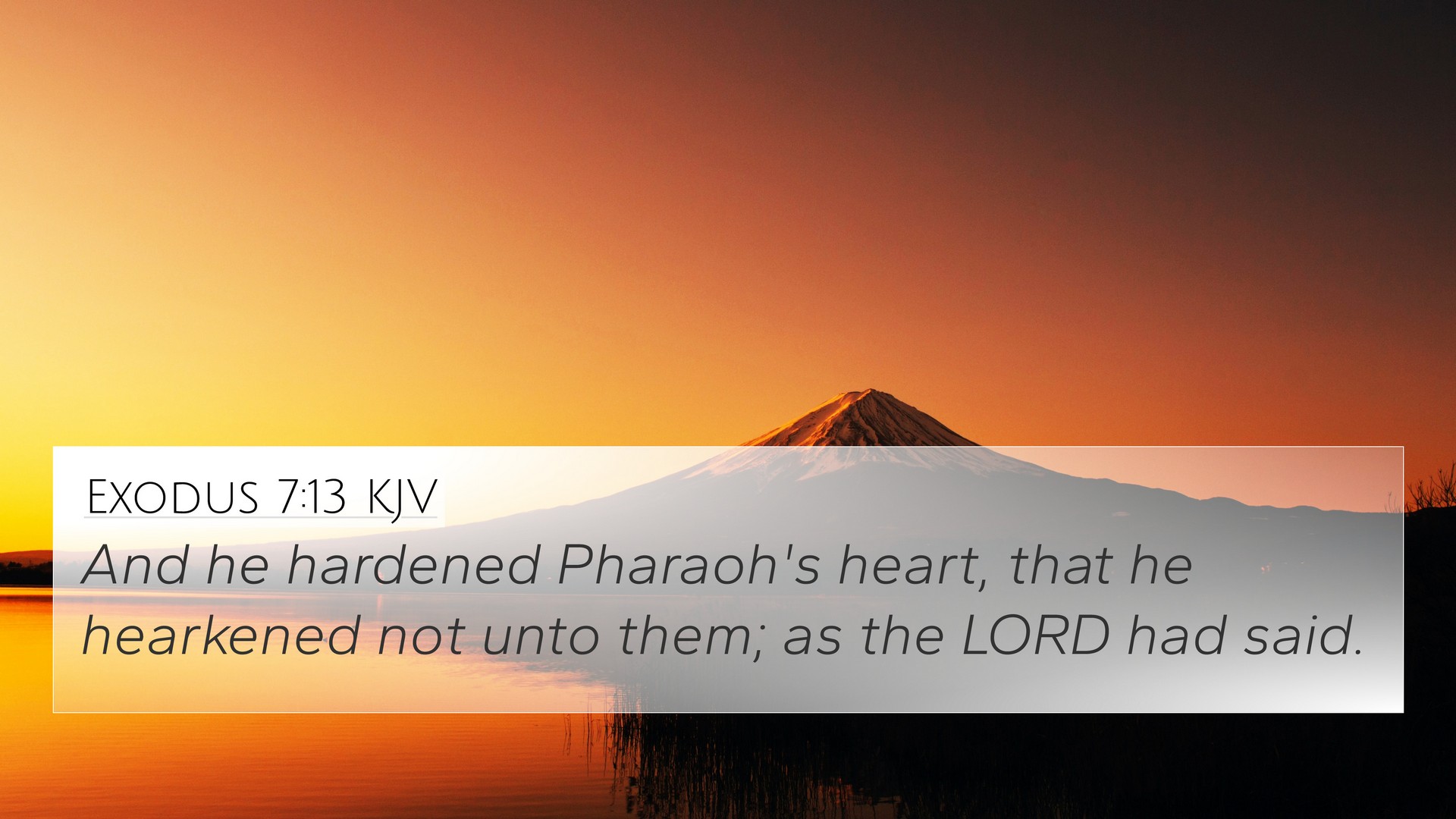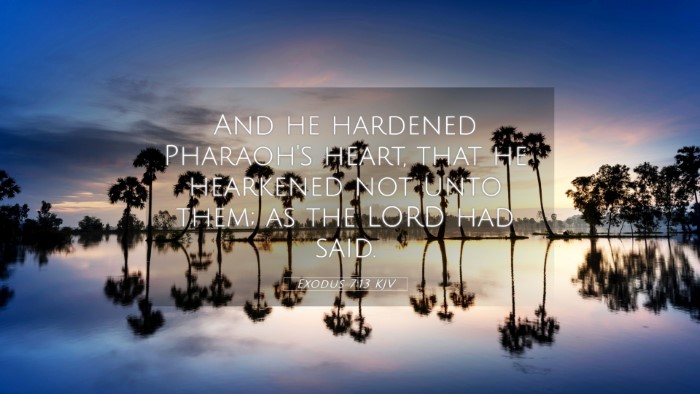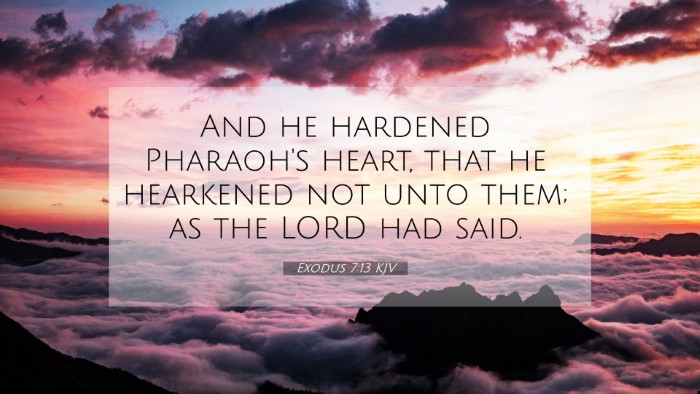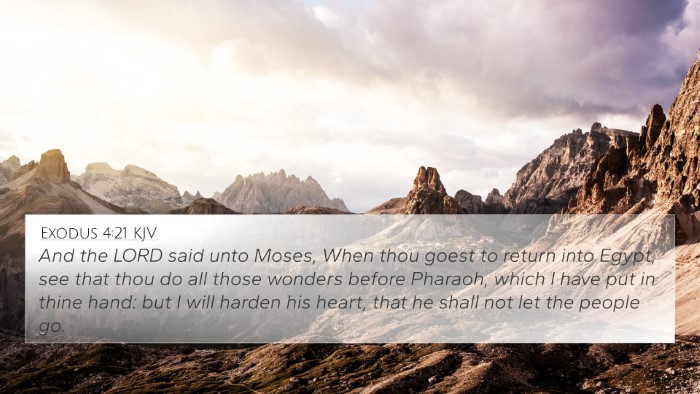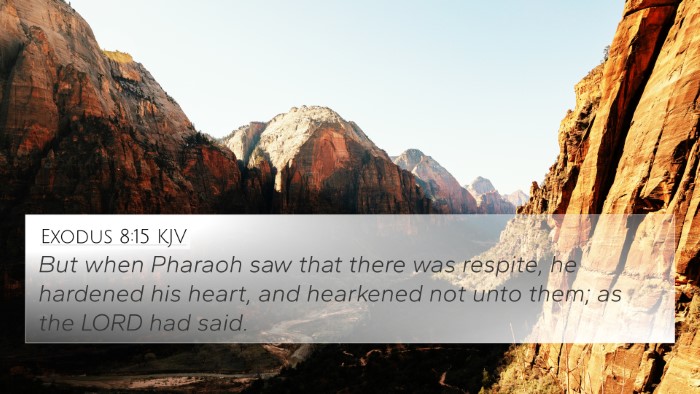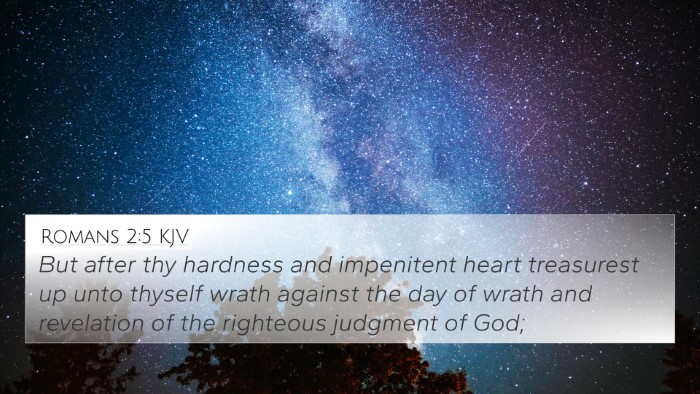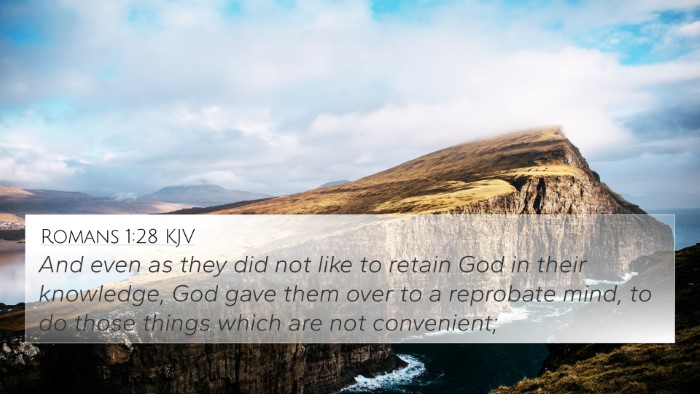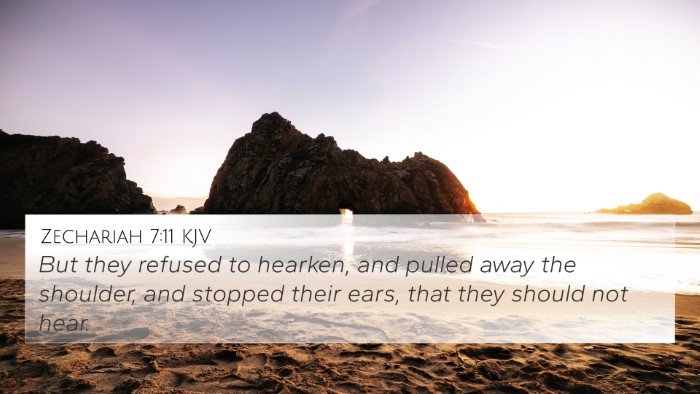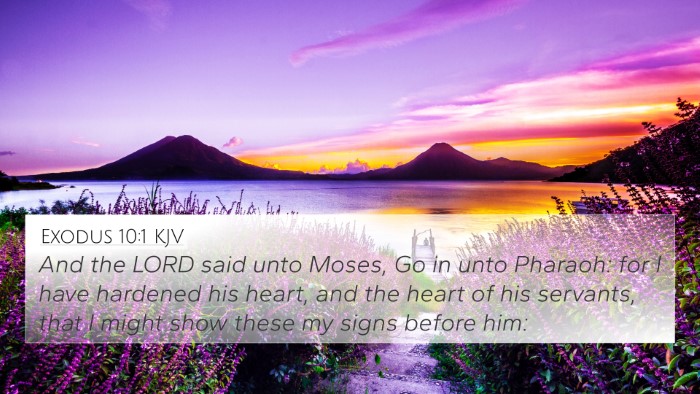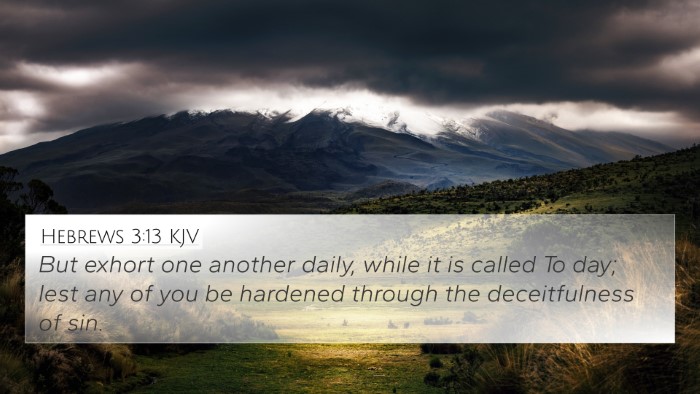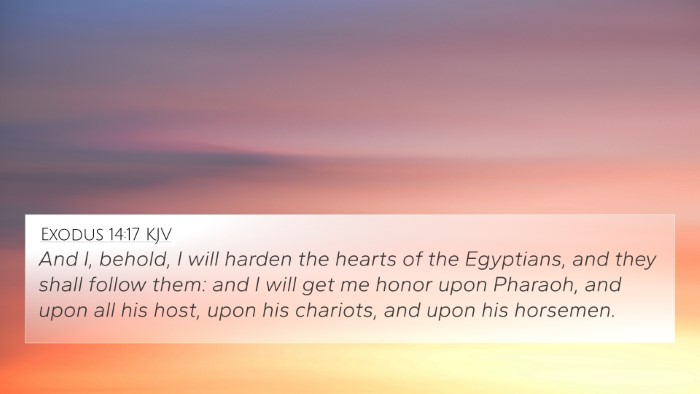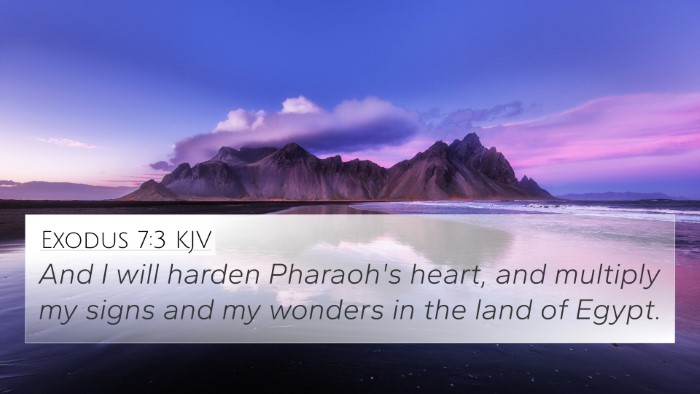Understanding Exodus 7:13
Exodus 7:13 states, "And he hardened Pharaoh's heart, that he hearkened not unto them; as the Lord had said." This verse is pivotal in understanding the confrontation between Moses and Pharaoh as well as the theme of divine sovereignty in the narrative of the Exodus.
Summary of Meaning
This verse illustrates the power of God in the process of liberation for the Israelites. It reveals the persistent resistance of Pharaoh and emphasizes that the hardness of his heart was a part of God's sovereign plan. Many interpretations align in recognizing the purpose behind Pharaoh's hardened heart—which serves not only to fulfill God's promise but also to demonstrate His authority over Egypt and its gods.
Commentary Insights
-
Matthew Henry:
Henry notes that the hardening of Pharaoh's heart demonstrates the consequences of rejecting God's commands. He elucidates that God allows sin to harden hearts, which ultimately leads individuals away from repentance. This submission to pride and authority leads to a great demonstration of power as God performs miracles through Moses.
-
Albert Barnes:
Barnes elaborates on the theology of divine hardening, explaining that God does not forcibly cause someone to sin but rather permits a person's sinful inclinations to flourish. He views the hardening as a natural consequence of Pharaoh's obstinacy, which serves to manifest God’s glory through judgment and deliverance.
-
Adam Clarke:
Clarke emphasizes the importance of understanding the hardening of Pharaoh's heart in context. He ties this event to a larger narrative about the salvation of the Israelites and the showcasing of God’s power not only to Egypt but to future generations. Clarke warns that such hardening shows the dangers of resisting divine instruction and the resulting lack of divine grace.
Cross References
Exodus 7:13 connects with several key scriptures that shed light on its meaning:
- Exodus 4:21: God foretells the hardening of Pharaoh’s heart.
- Romans 9:17: Paul references Pharaoh as a tool for God’s glory.
- 2 Chronicles 36:13: Parallel of hardening leading to judgment.
- Hebrews 3:15: A reminder about hardening hearts against God's voice.
- Isaiah 63:17: Queries why God allows hearts to be hardened.
- John 12:40: A New Testament reflection on blind eyes and hardened hearts.
- Matthew 13:15: Jesus speaks of hearts that have become dull and unresponsive.
- Mark 6:52: Disciples’ hearts hardened due to unbelief.
- Romans 1:24: Discusses how God gives people over to their sinful desires.
- 1 Samuel 6:6: A reference to the Philistines' hearts being hardened.
Exploring Thematic Connections
The hardening of Pharaoh's heart encapsulates several themes throughout the Bible, including:
- Divine Sovereignty
- Judgment vs. Mercy
- Faith and Unbelief
- Human Resistance to God's Will
- The Purpose of Signs and Wonders
Tools for Bible Cross-Referencing
Utilizing tools for Bible cross-referencing can enhance understanding of verses like Exodus 7:13. Resources such as Bible concordances and cross-reference guides are invaluable for exploring:
- Identifying connections between Old and New Testaments
- Detailed studies of particular themes across scripture
- Comparative studies of Pauline epistles and prophetic books
Conclusion
Exodus 7:13 serves as a critical verse in the broader narrative of Exodus, emphasizing God's sovereign will and the obstinacy of Pharaoh. Understanding the hardening of hearts invites readers to explore their responsiveness to God’s voice, reinforcing the gravity of seeking divine guidance and the peril of resistance. This reflection inspires deeper engagement with biblical texts and their interconnections throughout the Scriptures.
